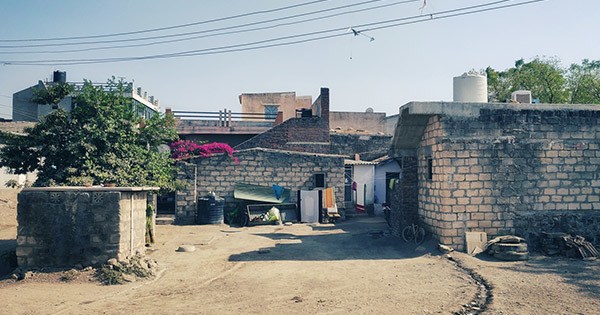On March 25th, India suddenly announced a strict, severe national lockdown—the largest in the world, affecting nearly 1.4 billion people. People were left scrambling to protect themselves and their families—often with little information about the frightening new disease. Countless questions bubbled to the surface: How would people prevent the virus’s spread without proper health and hygiene information? Should families living in poverty prioritize buying masks and soap above food? There were, and still are, no easy answers to these questions for innumerable vulnerable communities in India, and many looked to local leaders for guidance and support.
In the tiny village of Vangadhra, in the western state of Gujarat, a 30-year-old woman named Shobhnaben rose to the challenge. Shobhnaben is the sarpanch, or elected leader, of her village. Sarpanches are part of India’s local-level governing structure; they represent their communities in the intricate networks of rural villages all over India; the rising number of women sarpanches in recent years has electrified and strengthened the fight for a more equal society.
When India announced the national lockdown, Shobhnaben knew she had to keep her community safe from COVID-19, while also ensuring that everyone was fed and no one was left behind. She did not waste a moment.
Shobhnaben, still in her first term as village sarpanch, organized and mobilized her village to prepare for the pandemic. She coordinated the sanitization of the entire village, and created a schedule to regularly disinfect buildings. She educated her community about basic health and hygiene practices to limit the spread of the virus, including wearing masks and thoroughly washing hands. But her true demonstration of leadership? Shobhnaben entrusted her fellow villagers to lead as well; she knew everyone had to work together.

Villagers began taking shifts guarding the roads leading into Vangadhra, ensuring that people returning home from other towns and cities would get medical checks and then self-quarantine. With the help of young volunteers, Shobhnaben identified which villagers were most vulnerable, and ensured that they would receive food aid throughout the lockdown. No one in Vangadhra would go hungry under her leadership.
That’s where AJWS grantee-partner Society for Women’s Action and Training Initiative (SWATI) comes in. As Shobhnaben leads her community through this unprecedented crisis, SWATI is helping to supply her village with the food they desperately need.
Since its founding in 1994, SWATI has been mobilizing women into collectives, and training them to take collective action and exercise their rights as Indian citizens. SWATI challenges traditional gender norms, which often impose restrictions on women. Their community-based work supports 55 villages across Gujarat, including Shobhnaben’s community. Although Shobhnaben herself was not trained in her role as sarpanch by SWATI, the organization recognized her leadership and helped her fulfill her ambitious plan for crisis response.
When the pandemic ground India to a halt, the organization pivoted its work to meet the most urgent needs of the communities they serve, by ensuring that no one will go hungry. But their core values are still aligned with AJWS’s strategic priorities in India—including supporting women’s community organizing.
Indeed, SWATI has worked for over 25 years to challenge gender inequality by fostering women with leadership and vision like Shobhnaben. Her story is a powerful reminder that when women gain the support they need to succeed, their communities benefit. With SWATI’s support, women like Shobhnaben can transcend traditional roles for women and become leaders capable of addressing the most critical challenges of our time.

